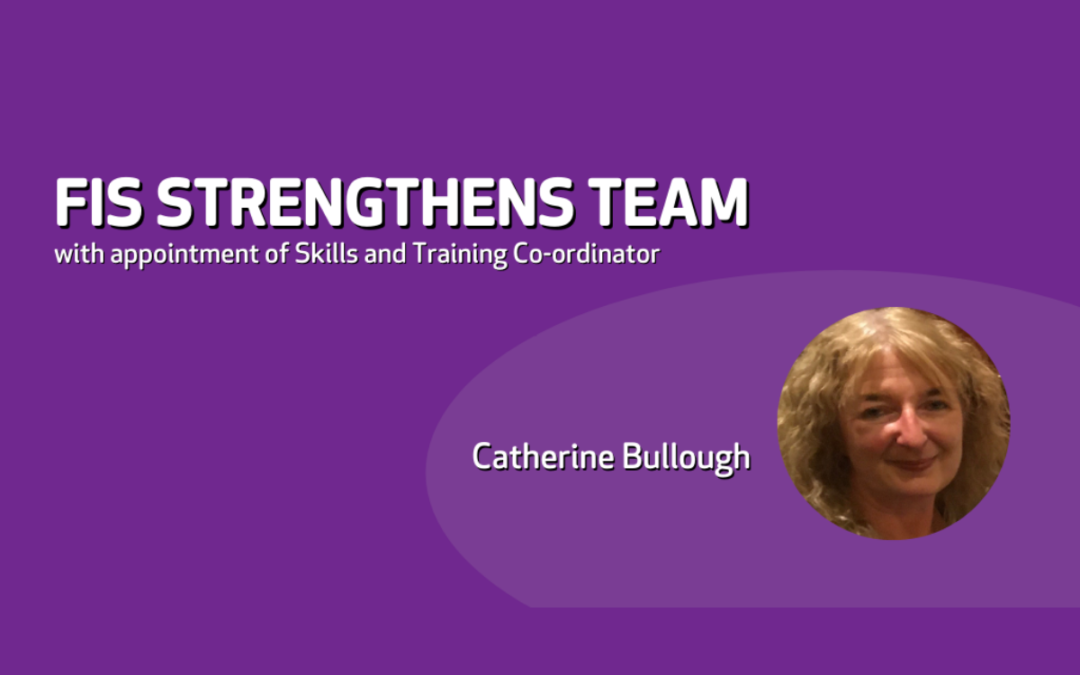
by Clair Mooney | Mar 11, 2021 | Skills
Several industries where project-based employment is the norm have struggled more than most to comply with the 12-month minimum apprenticeships rule, but their fortunes could be about to change. Chancellor of the Exchequer Rishi Sunak announced in last week’s Budget a £7 million fund to run so-called “portable” or “flexi-job” apprenticeships in sectors such as creative and construction.
This “new approach” will involve organisations applying for money to start new agencies which employ apprentices and place them with multiple employers. It is targeted at those industries that cannot offer a long-enough placement with a single employer for apprentices to meet the government’s minimum 12-month duration requirement. In the TV and film sector, for example, most roles are freelance and usually only run for two to three months.
The flexi-job model was lauded by prime minister Boris Johnson during a speech on adult skills last year, after a meeting between ministers and his influential skills advisor Professor Alison Wolf decided the government should press ahead with its introduction. It also featured briefly in this year’s Further Education white paper.
The scheme will become the third agency-type model for apprenticeships, following Apprenticeship Training Agencies (ATAs) and Group Training Associations (GTAs), which have been established for many years but have arguably become neglected by policymakers. The Department for Education, which is responsible for the scheme, has promised a consultation on the proposals.
Levy problems ‘particularly stark’ for construction sectors supported by LOSC
Flexi-job apprenticeships are being specifically targeted at industries and sectors where work is often patchy. Workers in the finishes and interiors sector, for example, who are finishing off one high-end contract will often wait weeks before starting on the next contract.
FIS has discussed and draw attention to the problems the sector faces in labour shortages and these are “not unique, but it is particularly stark”. About 40 per cent of finishes and interior sector workers are LOSC, and it is only “if you’re lucky that your jobs will join up, whereas when you’re an apprentice, you have to have a minimum 18 month contract with one employer. So, you can’t move around.
This issue has led to reports of a serious underspend of the apprenticeship levy. With the restrictions on training during 2020 it is unlikely employers in the finishes and interiors sector have seen a return on the apprenticeship levy they have paid.
CITB runs its own Shared Apprenticeship Scheme which has supported 300 apprentices so far. CITB have stated to their credit, the government has recognised the problem and is acting to help the construction industry utilise apprenticeships more easily.
The Skills for Jobs white paper, published in January 2021, acknowledged that creative and construction face “barriers in making full use of apprenticeships,” due to their “varied and flexible employment patterns”.
It added that “sectoral apprenticeship agencies may offer one solution, giving constant employment to an individual during the life of their apprenticeship which allows them to move between work placements and continue their training”.

by Clair Mooney | Mar 8, 2021 | Membership, Skills
FIS has recently appointed Catherine Bullough to project manage the BuildBack and Kickstart Programmes. Catherine has over 17 years’ experience of working with the construction industry, having previously worked with CITB in both an operational and strategic capacity. Catherine was the Partnerships Manager with the Industry Relations Team, working with construction employers and stakeholders to ensure that the construction industry had the supply of skills that it needed across the South and South West of England
Originally hailing from “the Lang Toun” of Kirkcaldy, Fife, and gaining a mining technology qualification, Catherine headed south to study at Manchester Poly originally embarking upon a career with the Police and Trading Standards before moving into the field of learning and development.
Catherine will be working as part of the Skills & Training team at FIS; with a keen focus upon helping the sector recruit and retain new talent; enabling on-site solutions to help finishes and interior employers recruit and train; creating new opportunities through extended partnership working and identifying funding opportunities to support the sector.
Catherine is an APM qualified Project Manager and remains a keen Raith Rovers supporter!
Skills and Training Lead George Swann said; “We welcome Catherine and value the wealth of knowledge and experience she brings to the FIS team. In the short time Catherine has been here she has played a leading role in the implementation of the FIS KickStart programme and we should be seeing individuals placed with employers in the next few weeks. Catherine is preparing for the first cohort of FIS BuildBack candidates and we look forward to reporting success in placing these candidates with employers”.

by Clair Mooney | Mar 5, 2021 | Skills
Monday saw the opening of the consultation into CITB Levy proposals, in which they’re suggesting a return to pre-Covid rates in the way they raise the Levy for the next three years. CITB is asking for feedback on its plans to help get construction back on its feet and play a leading role in the country’s economic recovery.
Following their decision to apply a 50% Levy rate for this year, CITB is now proposing returning to 2019 levels from 2022. CITB will support smaller employers even further this year by increasing the threshold, making an extra 5,000 exempt from paying the Levy. Employers in scope to CITB are eligible for grant even if they do not pay the Levy. You can get full details on the CITB proposals by clicking here.
CITB Levy registered employers can take part in the consultation, which runs until Sunday 11 April, by clicking here. You can also register for one of their virtual events explaining the CITB proposals here. Consensus will take place from Monday 14 June to Sunday 15 August, with more information available here.

by Clair Mooney | Mar 4, 2021 | Skills
The Budget and Skills
Cash incentives for employers to hire new apprentices doubled
Apprenticeship financial incentives were first introduced by Sunak in August 2020 and currently offer firms £2,000 to take on apprentices aged 16 to 24, while those that employ new apprentices aged 25 and over are paid £1,500.
The chancellor said in the Budget on Wednesday that the bonuses, set to end on 31 March 2021 will be extended for a further six months to September. And any employers who hire a new apprentice between 1 April 2021 and 30 September 2021 will receive £3,000 per new hire, regardless of the apprentice’s age. This is on top of the £1,000 payment already provided for new apprentices aged 16 to 18 and those under 25 with an Education, Health and Care Plan, meaning that some employers could receive £4,000 in total.
FIS is aware the take-up of this incentive payment has been minimal to date. Approximately 15,000 employers have applied across all industries, and we know apprentice numbers are down around 30% on previous years. With training for the Interior Systems Installer apprenticeship now being offered by 11 registered Apprenticeship Training Providers and a further five organisations awaiting approval, provision is steadily increasing. This apprenticeship has options for Dry Lining and Ceiling and Partitions. If you are considering taking on an apprentice take a look at the FIS Apprentice – Guidance for Employers.
There is other financial support available for employers who employ apprentices and according to employers who do, the positive benefits outweigh the negatives. Have a listen to the FIS webinar on Building an Apprentice Workforce to hear what employer using different approaches think.
FIS will be happy to answer questions and/or provide further information, advice and guidance, give us a call on 0121 707 0077 or email info@thefis.org.
£126m for traineeships
Sunak said the government will provide an additional £126 million in England for “high quality” work placements and training for 16 to 24-year-olds in the 2021 and 2022 academic year. This is hoped to attract a further 40,000 traineeship starts next year. Employers who provide trainees with work experience will continue to be funded at a rate of £1,000 per trainee. Employers can have up to 10 Traineeship placements at a time. It builds on the £111 million the chancellor set aside in 2020 and 2021 to triple the number of traineeships.
‘Portable’ apprenticeships set to be launched
The government will introduce a £7 million fund from July 2021 to “help employers in England set up and expand portable apprenticeships”. The budget document says this will enable people who need to work across multiple projects with different employers, such as in the TV and film industries, to “benefit from the high quality long-term training that an apprenticeship provides”. The program will also suit occupations in construction.
Employers will be “invited to bring forward proposals here, and in particular the Creative Industries Council will be asked to do so in recognition of the potential benefits of this new approach for the creative sector”. The Treasury called this scheme “flexi-job” apprenticeships. The first of these are expected to start in January 2022.
‘Help to Grow’ scheme for Small and Medium Enterprises to upskill
The budget document says the government will offer a new UK-wide management programme to upskill 30,000 small and medium-sized enterprises over three years. It states: “Developed in partnership with industry, the programme will combine a national curriculum delivered through business schools with practical case studies and mentoring from experienced business professionals. “Over 12 weeks, and 90 per cent subsidised by government, this programme will equip SMEs with the tools to grow their businesses and thrive.” The budget’s costing document shows the government has set aside £60 million for this scheme in 2021 and 2022 and then £75 million for 2022 and 2023. It is unclear at this stage what government department will be responsible for this scheme.

by Clair Mooney | Mar 3, 2021 | CSCS, Skills
CSCS has announced that Associate and Chartered members of the Royal Institute of Chartered Surveyors (RICS) can use their memberships to apply for CSCS cards.
A CSCS card provides proof that individuals working on construction sites have the appropriate training and qualifications for the job they do on site. In most cases applicants are required to achieve a recognised construction related qualification (usually an NVQ or SVQ) as well as pass the Construction Industry Training Board’s health, safety and environment test within the last two years
CSCS also offer cards for members of certain recognised Professional Bodies. In such instances, applicants for CSCS cards can use their Professional Body membership to prove their competence, rather than the achievement of a vocational qualification or other equivalents.
CSCS has worked closely with the RICS to carry out a detailed mapping exercise of their membership criteria. As a result, the following CSCS cards can now be offered to those at the following level of RICS membership:
| Membership level |
CSCS card available |
| Student
Student members registered onto an Apprenticeship |
Trainee card
Apprentice card |
| Associate (qualified through the recognised Level 3 Apprenticeship)
Associate (qualified through the recognised Level 6 Apprenticeship) |
Advanced Craft Gold card
PQP card |
| Associate (all others) |
PQP card |
| Chartered |
PQP card |
Alan O’Neile, Head of Communications at CSCS said: “This is another great example of the industry working together to improve standards and safety on UK construction sites. The RICS have been maintaining professional standards in chartered surveying for over 150 years and it is their commitment to continual professional development that really ties in with the objectives of the PQP card.” The PQP card is valid for five years and all applicants must pass the CITB Managers and Professionals Health, Safety and Environment Test.
When applying for this card, Associate RICS members will need to provide a letter from the RICS confirming how they gained their membership to ensure that they are applying for the correct card.
Student and Chartered RICS members must provide proof of their current RICS membership.

by Clair Mooney | Feb 25, 2021 | Skills
From April 2021, any adult aged 24 and over who wants to achieve their first full level 3 qualification, which is equivalent to a technical certificate or diploma, will be able to access almost 400 fully funded courses. The qualification list will be updated each month. Awarding Organisations will work with the DfE and industry to ensure further courses are added to this list where there is demand and they meet DfE requirements. The list of 400 qualifications currently include the following Level 3 outcomes applicable to the finishes and interiors sector:
- Site Carpentry
- Bench Joinery
- Decorative Finishes – Painting and Decorating
- Kitchen Installation Skills
- Ceiling Fixing
- Plastering
- Wall and Floor Tiling
- Installing Construction Anchors and Site Testing
- Occupational Work Supervision
- Leadership and Management
If you would like a qualification added to this list please contact FIS either by emailing info@thefis.org or call 0121 707 0077. For the full list please see the List of qualifications included in the National Skills Fund – level 3 Adult offer






